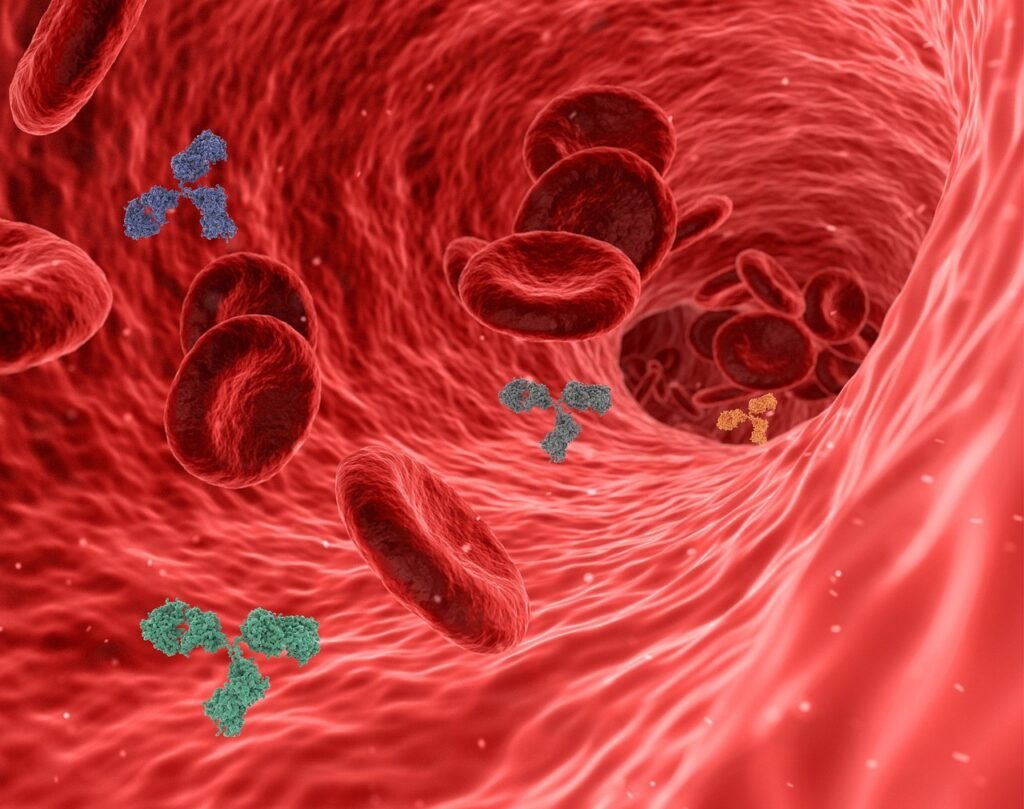Introduction
Covering four different approaches to the nourishment of a healthy immune system, Immune Complex provides vitamins, zinc, probiotics and herbal extracts in a convenient, once-a-day serving. The immune system is a complicated machine, so Immune Complex offers many different kinds of support in one dietary supplement.
Vital Vitamins
It’s common knowledge that vitamin C is a key nutrient for the functioning of a healthy immune system. Vitamin E is a potent antioxidant also associated with the immune system, especially among older people. Vitamin B6 (pyridoxine) is yet another essential vitamin that is a necessary nutrient for a healthy immune system. All three of these are provided by Immune Complex in good supplementary amounts.
Multiple approaches
Zinc is included in Immune Support because it plays a crucial role in supporting a healthy immune system, from the skin to the cell level. Lactobacillus acidophilus is a key probiotic species that can help support gut health, which is very important to the absorption of nutrients. L-Glutamine is an amino acid used in large amounts by the immune system.
Beneficial Botanicals
All over the natural health media you’ll find exciting news about the botanical ingredients found in Immune Complex. Elderberry, Garlic and Echinacea all have been the subject of research that suggests support for a healthy immune system. Curcuminoids (from Turmeric) are special, providing powerful antioxidant potential that can support the body through normal oxidative stress.
Immune Complex is made in the US within an FDA registered facility that follows GMP guidelines. Ingredients in the formula are both domestic and imported
For more information and to get this offer click on this
Immune Complexes: What They Are and How They Impact Health
The immune system is a complex network of cells, tissues, and organs that work together to protect the body from harmful pathogens and foreign substances. One important aspect of the immune system is the formation of immune complexes, which play a crucial role in immune responses. In this article, we will explore what immune complexes are, how they are formed, and their impact on health.
What are Immune Complexes?
Immune complexes are clusters of antibodies and antigens that are formed when the immune system responds to an infection or foreign substance. Antibodies are proteins produced by the immune system in response to an invading pathogen or foreign substance. Antigens are molecules that trigger an immune response by binding to specific antibodies.
When antibodies and antigens bind together, they form immune complexes. These complexes can be found in the blood, lymphatic system, and other tissues throughout the body. Immune complexes are essential in the process of eliminating foreign substances and pathogens from the body.
How are Immune Complexes Formed?
Immune complexes are formed when antibodies bind to antigens. This process typically occurs in response to an infection or foreign substance in the body. When the immune system detects a foreign substance, such as a virus or bacteria, it produces antibodies to target and neutralize it. Once the antibodies bind to the antigen, they form immune complexes.
Immune complexes can also form in certain autoimmune disorders, where the immune system mistakenly attacks healthy tissues in the body. In these cases, the immune system produces antibodies that bind to self-antigens, forming immune complexes that can contribute to tissue damage and inflammation.
What is the Role of Immune Complexes in Health?
Immune complexes play a crucial role in the immune system’s ability to identify and eliminate foreign substances and pathogens. They can also contribute to the development of certain autoimmune disorders.
In certain infections, such as hepatitis B or C, immune complexes can lead to tissue damage and inflammation. This occurs when the immune system produces an excessive amount of immune complexes in response to the infection. The immune complexes can then deposit in tissues, causing damage and inflammation.
In autoimmune disorders, immune complexes can contribute to tissue damage and inflammation by depositing in tissues and activating the immune system. This can lead to chronic inflammation and tissue damage, which can ultimately result in organ damage and dysfunction.
How are Immune Complexes Tested?
Immune complexes can be measured through laboratory tests, such as the complement fixation test and the immunodiffusion test. These tests detect the presence and quantity of immune complexes in the blood and other tissues. Elevated levels of immune complexes can indicate the presence of an infection or autoimmune disorder.
Treatment for Immune Complex-Related Disorders
Treatment for immune complex-related disorders depends on the underlying condition. Infections that lead to immune complex formation can often be treated with antibiotics or antiviral medications. In autoimmune disorders, treatment may involve medications that suppress the immune system or reduce inflammation.
Conclusion
Immune complexes are essential in the immune system’s ability to identify and eliminate foreign substances and pathogens. However, excessive immune complex formation can lead to tissue damage and inflammation, which can contribute to the development of certain infections and autoimmune disorders. Testing for immune complexes can help identify the presence of these disorders, and treatment can be tailored accordingly.
